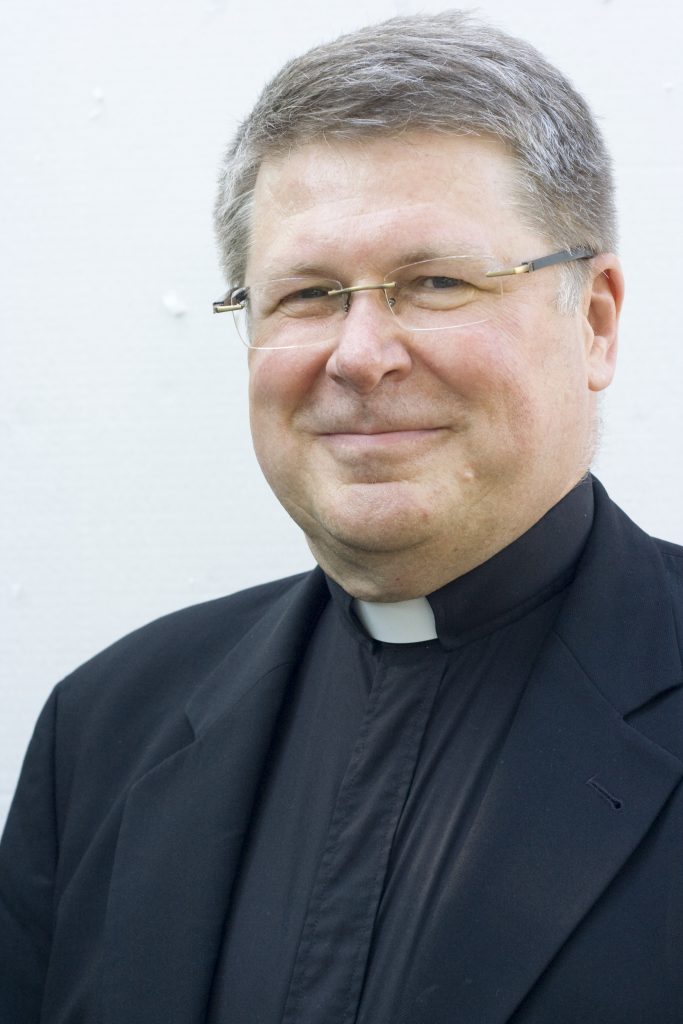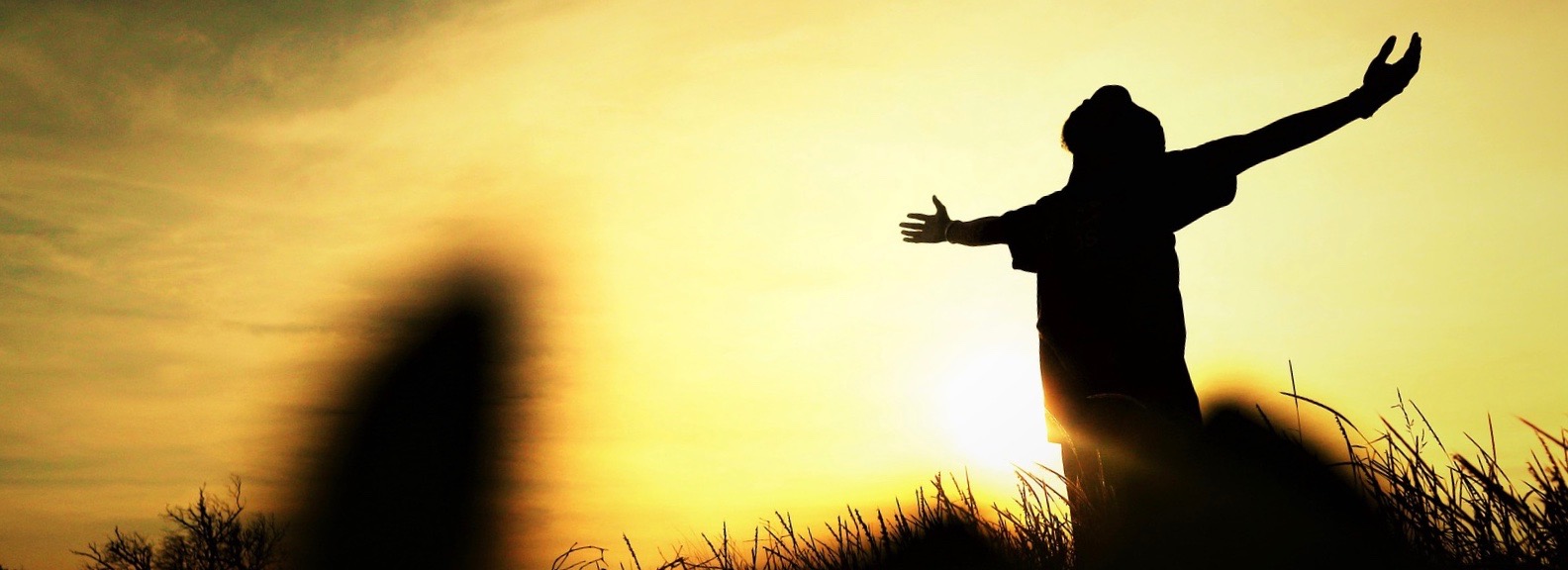Note: I interviewed Fr. Jan Michael Joncas a few weeks ago about the enduring power and comfort of his song, “On Eagle’s Wings” for Catholic Digest magazine, which went out of print not long after the assignment. So with Fr. Joncas’ permission, I am posting the article here.

When Fr. Jan Michael Joncas composed the song “On Eagle’s Wings” four decades ago, he was trying to comfort a friend whose father had just died of a heart attack. He wrote the song on guitar in the days following the death and then performed it at the funeral, and that might have been the end of the story. But God, Fr. Joncas said in a recent interview, had other plans.
“It’s just amazing to me,” said Joncas, 68, a prolific composer, priest of the Archdiocese of St. Paul and Minneapolis, and artist-in-residence and research fellow in Catholic Studies at St. Thomas University. “I had no way of knowing, first of all, how it got distributed so that people could use it. But by now, it’s made its way across most of the English-speaking world and into other denominational hymnals.”
Even higher-profile uses of the song include recordings by superstars like Josh Groban and Michael Crawford, as well as its performance at the memorial service for the 1995 Oklahoma City bombing victims and at the funeral of opera singer Luciano Pavarotti.
“I never expected anything like this to happen,” said Fr. Joncas, quarantined at home in St. Paul, “but as I’ve grown older, I’ve grown more and more comfortable with it. I tell my friends that to even have written one piece that has allowed this many people to sing their faith is an incredible gift. Even if nothing else I’ve written ever has that same kind of distribution or power, I’m still happy with it. God does what God wants with this stuff. I am just more and more amazed at how God can use things that you might not ever have thought of to advance whatever God’s intentions are.”
And although it’s become one of a handful of contemporary hymns that have become staples at funerals, Fr. Joncas believes its scriptural roots in Psalm 91, as well as in Exodus and the Gospel of Matthew, make it a song of comfort for the many confusing and fearful times of our lives, as well as for ordinary and joyful times like baptisms and weddings.
“I’m going to use my academic background here,” he said, laughing quietly. “It’s the multivalence [ability to have many values and meanings] of any kind of canonical text scriptures that give them really different importance or different meanings based on the context in which they are used. So the context for ‘Eagle’s Wings’ has been in most people’s experience of funerals, but it’s not limited to that.”
The fact that the song can often make people cry – not because it’s sad but because it’s so comforting — is a gift of the Spirit, said Fr. Joncas, who in 2003 was diagnosed with Guillain-Barré Syndrome, a disorder in which the body’s immune system attacks the nervous system. He was paralyzed for several years and unable to compose. He wrote about his experiences of the disease in “On Eagle’s Wings: A Journey Through Illness Toward Healing,” released in 2017 by Twenty-Third Publications. It was that experience, he says, that allowed him to move beyond his Midwestern stoicism.
“The Eastern traditions talk about the gift of tears, which I think is really accurate,” he said. “I’m a now-beyond-middle-aged, Caucasian Midwesterner, which means that expressions of deep emotion just don’t come to me naturally. After my experience with Guillain-Barré, I found that I’m much more able to trust the feelings, to let them come out, and to connect empathically with people.”
It is, perhaps, the song’s central and vivid image of being “held in the palm of his hand” that gets us every time. It’s a physical impossibility, but it’s the emotional driver of the song. And that’s the power of scripture, Fr. Joncas says.
“One of the things I teach is that psalms are the cries of the human heart, that even though these are ancient Jewish lyrics, they have this wonderful ability to enter very deeply into human experience and then allow that experience to become a way of encountering God.”
At this moment in time, when the world is wracked by disease and the fear of the unknown, Fr. Joncas suggests that leaning on ancient texts like the Psalms can be a healing salve precisely because there’s nothing new under the sun.
“Although this [pandemic] is certainly unprecedented in our memory, there are people who can point to the Spanish influenza right at the beginning of the 20th century. As a historian, I can say, ‘well, it’s not the black death where a third of Europe simply disappeared over the course of a couple of years.’ We’ve faced this kind of difficulty before. But I think the scary part is we’ve got so much good science and technology that we thought we’d be protected from anything like this. So it really pulls the rug out from underneath our expectations.
“When that happens, I think going back to texts from our heritage is important, and songs of comfort remind us of a time when we have already experienced God’s care, and it’s kind of an act of trust that God will continue to care for us.”
In the palm of his hand.




8 comments On Songs of Comfort: On Eagle’s Wings
Thanks for doing this interview and sharing it, Steve. What a wonderful gift Fr. Joncas has given the world, and it is your gift to be sharing the story.
I have always loved this song Steve and to hear it with full orchestra and to read about
the humble story behind it is very moving. Thank you and peace be with you. 🙏🏻
Beautiful – thank you, thank you!
Thanks for sharing this. I was sad to learn Catholic Digest will cease publishing. But stories like this are of value and will live on regardless of the platform where they’re published.
Take care and God bless!
Thanks, Joe. Feel free to share…
Thanks, Judy. Thanks for writing.
Thanks, Jane. It’s a timeless sing and Fr. Joncas was great to talk to.
Thanks to you, the person who taught me to write a feature. I’m tryig not to forget…